Recent Blog Posts
State Lawmakers Propose Enough Is Enough Package in Quest for Police and Justice Reform
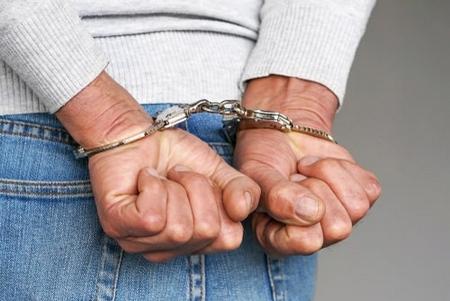 Last month, several Wisconsin state lawmakers introduced a handful of bills that target police and justice reform. One of the lawmakers who introduced the bills referred to as the “Enough Is Enough” package, says the proposed legislation is meant to build on and not negate the proposals that came out of Assembly Speaker Robin Vos’ Task Force on Racial Disparities.
Last month, several Wisconsin state lawmakers introduced a handful of bills that target police and justice reform. One of the lawmakers who introduced the bills referred to as the “Enough Is Enough” package, says the proposed legislation is meant to build on and not negate the proposals that came out of Assembly Speaker Robin Vos’ Task Force on Racial Disparities.
Enough Is Enough
The Speaker’s task force and the Enough Is Enough package are in response to the demands for police reform from many Wisconsin residents who have spent the last year protesting. The proposed changes focus on what type of training police officers should and should not have, as well as who should be making decisions when it comes to disciplinary procedures for police misconduct and officer-involved deaths.
Highlights of some of the proposed training changes for officers include:
Expunging a Juvenile Criminal Record in Wisconsin
 When a person has a criminal record, that history can significantly impact their ability to find employment, housing, and even education. This is especially true for people who committed criminal acts when they were juveniles. Many states allow that juvenile record to be expunged, depending on the circumstances of the crime. When a criminal record is expunged, it removes arrests and/or convictions as if they never occurred and not even the courts, prosecutors, or law enforcement have access to the record.
When a person has a criminal record, that history can significantly impact their ability to find employment, housing, and even education. This is especially true for people who committed criminal acts when they were juveniles. Many states allow that juvenile record to be expunged, depending on the circumstances of the crime. When a criminal record is expunged, it removes arrests and/or convictions as if they never occurred and not even the courts, prosecutors, or law enforcement have access to the record.
Wisconsin has a very limited juvenile expungement process and thanks to a recent Wisconsin Supreme Court ruling, that process may be even more difficult.
Juvenile Justice and Expungement
It has been well documented in study after study that a teenager’s brain is not fully developed, especially in the prefrontal cortex of the brain. This is the part of the brain that controls a person’s ability to delay and reflect on a decision. This is why many teens often will act before they think about what they are doing. This area also controls impulsivity, something that many teens have a hard time with. The prefrontal cortex also controls a teen’s ability to consider the consequences of their actions, as well as buckle to peer pressure.
What You Should Do After Getting Arrested for DUI
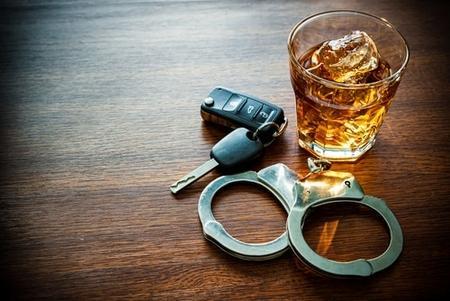 From fines and jail time to a criminal record, a DUI comes with many consequences. People with DUI convictions may have a more difficult time securing employment and strained relationships with their family members and friends. Taking the proper steps immediately after your arrest, however, can improve your chances of a more favorable outcome.
From fines and jail time to a criminal record, a DUI comes with many consequences. People with DUI convictions may have a more difficult time securing employment and strained relationships with their family members and friends. Taking the proper steps immediately after your arrest, however, can improve your chances of a more favorable outcome.
Steps to Take After a DUI Charge
Although you may feel nervous and scared right now, you must regain your composure and do what is necessary to protect your future. By taking the appropriate action at the appropriate time, you can help your own case as you move forward:
Here are a few steps to take after getting charged with a DUI in Wisconsin:
- Arrange transportation. Once you get arrested for a DUI, your driver’s license will automatically get suspended. This poses a problem because you have to go to court, work and other important places. Ask a trusted family member or friend to drive you to these places until you get your license back.
Understanding Wisconsin’s Driver’s License Point System
 Most people are pulled over by a police officer at one point or another, even if it is just for something small, like forgetting to use a turn signal. A single traffic stop may not have serious consequences, but in Wisconsin, each time you are issued a traffic ticket by an officer, you face more points accumulating on your driving record. If you have too many points, you could eventually have your driving privileges taken away from you. If you have gotten a ticket or you have been pulled over recently, you should speak with a Wisconsin traffic ticket attorney who can help you understand your options.
Most people are pulled over by a police officer at one point or another, even if it is just for something small, like forgetting to use a turn signal. A single traffic stop may not have serious consequences, but in Wisconsin, each time you are issued a traffic ticket by an officer, you face more points accumulating on your driving record. If you have too many points, you could eventually have your driving privileges taken away from you. If you have gotten a ticket or you have been pulled over recently, you should speak with a Wisconsin traffic ticket attorney who can help you understand your options.
How Does the Point System Work?
Like most other states, Wisconsin uses a point system to keep track of each driver’s record in an attempt to keep dangerous drivers off of the road. Every time you are issued a traffic ticket, you will also be issued a specific number of points on your driving record for that ticket. More serious violations result in more points. Some of the most common traffic violations and their assigned number of points include:
What Happens If I Am Sentenced to Community Supervision in Wisconsin?
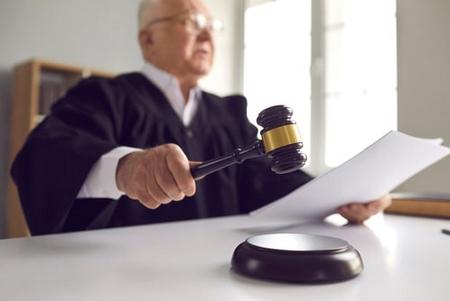 It goes without saying that some crimes are not as serious as others, but even minor crimes are not without their consequences. In many situations involving low-level crimes, judges may choose to sentence a person to community supervision, rather than to a term of confinement in jail. Often, community supervision is the most favorable outcome a person could get for a low-level offense. If you have been accused of committing a crime, you should speak to a Wisconsin criminal defense lawyer to discuss your options.
It goes without saying that some crimes are not as serious as others, but even minor crimes are not without their consequences. In many situations involving low-level crimes, judges may choose to sentence a person to community supervision, rather than to a term of confinement in jail. Often, community supervision is the most favorable outcome a person could get for a low-level offense. If you have been accused of committing a crime, you should speak to a Wisconsin criminal defense lawyer to discuss your options.
Types of Community Supervision in Wisconsin
If you are sentenced to a crime, a judge may choose to defer your adjudication and sentence you to a period of community supervision, rather than sending you to jail. In Wisconsin, there are three types of community supervision:
What Are the Consequences of a Wisconsin Hit-and-Run Charge?
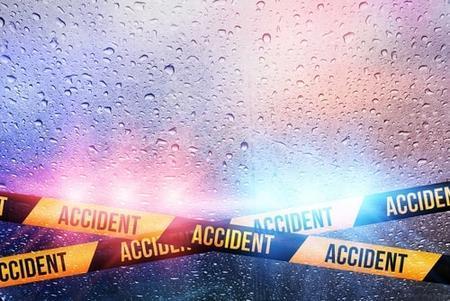 When you get into a traffic accident, the proper thing to do is to check for injuries and then exchange contact information so you can work everything out with your insurance companies. In fact, most states require that you do this by law, but it does not stop some people from fleeing the scene when they get into an accident. According to the National Highway Traffic Safety Administration (NHTSA), there were more than an estimated 814,000 hit-and-run crashes that took place across the country in 2019. If you have been accused of being involved in a hit-and-run accident, you should speak with a Wisconsin criminal defense attorney to discuss your options.
When you get into a traffic accident, the proper thing to do is to check for injuries and then exchange contact information so you can work everything out with your insurance companies. In fact, most states require that you do this by law, but it does not stop some people from fleeing the scene when they get into an accident. According to the National Highway Traffic Safety Administration (NHTSA), there were more than an estimated 814,000 hit-and-run crashes that took place across the country in 2019. If you have been accused of being involved in a hit-and-run accident, you should speak with a Wisconsin criminal defense attorney to discuss your options.
Requirements After a Wisconsin Car Accident
If you are involved in a car accident in Wisconsin, there are certain things that you are required by law to do. After you get into a collision in Wisconsin, the law states that you must get out of your vehicle and investigate what you hit. If you hit a person or a vehicle that had a person inside of it, you are required to:
Can You Lose Your Wisconsin Driver’s License Due to a Speeding Ticket?
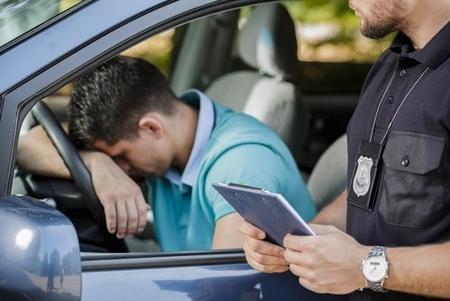 When you are pulled over for a traffic stop and the officer believes you were speeding, one of the first things they will likely say is, “Do you know how fast you were going?” Many people do not even realize when they are speeding. It can be extremely easy for the speedometer to inch up and eventually move past the legal speed limit. Most people would simply accept their fate, pay the fine, and move on with their lives. However, paying the fine on a speeding ticket is an admission of guilt and can come with further consequences in some circumstances. If you have received a speeding ticket, you should consult with an attorney to determine how paying the ticket would affect your situation.
When you are pulled over for a traffic stop and the officer believes you were speeding, one of the first things they will likely say is, “Do you know how fast you were going?” Many people do not even realize when they are speeding. It can be extremely easy for the speedometer to inch up and eventually move past the legal speed limit. Most people would simply accept their fate, pay the fine, and move on with their lives. However, paying the fine on a speeding ticket is an admission of guilt and can come with further consequences in some circumstances. If you have received a speeding ticket, you should consult with an attorney to determine how paying the ticket would affect your situation.
Penalties for a Speeding Ticket
Most of the time, when you receive a speeding ticket in Wisconsin, it is only charged as a moving violation. This means that the main penalty for the offense is only a fine. According to Wisconsin law, most speeding tickets carry a possibility of fines between a minimum of $30 and a maximum of $300.
What Rights Do I Have if I Am Pulled Over For OWI in Wisconsin?
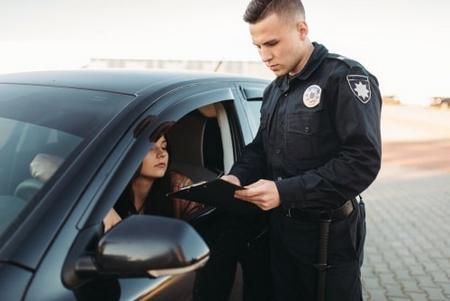 Many adults like to enjoy an alcoholic beverage or two when they spend time with friends or go out to eat. However, those beverages could get you into trouble if you are not careful. In all 50 states, it is illegal to drive under the influence of drugs or alcohol. In Wisconsin, OWI penalties can be expensive, especially if you have to pay other costs, like for an ignition interlock device (IID). During a traffic stop, police officers will constantly be looking for evidence or anything that can prove that you were, in fact, driving while you were intoxicated. If you are pulled over for OWI, you should know that you have rights.
Many adults like to enjoy an alcoholic beverage or two when they spend time with friends or go out to eat. However, those beverages could get you into trouble if you are not careful. In all 50 states, it is illegal to drive under the influence of drugs or alcohol. In Wisconsin, OWI penalties can be expensive, especially if you have to pay other costs, like for an ignition interlock device (IID). During a traffic stop, police officers will constantly be looking for evidence or anything that can prove that you were, in fact, driving while you were intoxicated. If you are pulled over for OWI, you should know that you have rights.
Rights During an OWI Traffic Stop
While you may feel helpless when you are pulled over by police, it is important to realize that you do have rights that you can exercise that may protect you if you are charged. Some of the most important rights include:
What Types of Compensation Can I Claim if I Am a Victim of a Crime in Wisconsin?
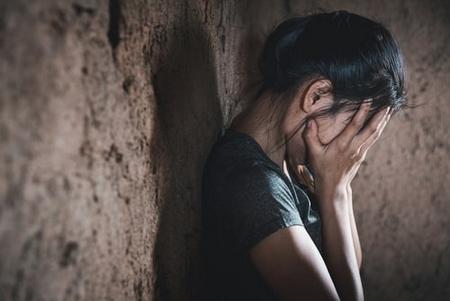 For almost every crime, there is going to be a victim. Some crimes are more violent than others, but nearly all crime is going to have an effect on someone, somewhere. When it comes to crimes that are committed directly to or in the presence of a person, the risk of sustaining certain types of damages is increased significantly. Many people may not be aware that there are programs available to help with the unexpected costs that victims may incur after a crime is committed. In Wisconsin, there are many situations in which you may be eligible to receive various types of compensation through the state’s Crime Victim Compensation program.
For almost every crime, there is going to be a victim. Some crimes are more violent than others, but nearly all crime is going to have an effect on someone, somewhere. When it comes to crimes that are committed directly to or in the presence of a person, the risk of sustaining certain types of damages is increased significantly. Many people may not be aware that there are programs available to help with the unexpected costs that victims may incur after a crime is committed. In Wisconsin, there are many situations in which you may be eligible to receive various types of compensation through the state’s Crime Victim Compensation program.
Eligibility Requirements
Victims of certain crimes, family members of deceased victims, those who were injured helping a crime victim or police officer, and those who have been in an accident with an intoxicated driver are all able to file claims with the Crime Victim Compensation program, as long as they meet the eligibility requirements. To be eligible for compensation, the following must be true:
What Are The Laws in Wisconsin for Transporting Firearms?
 Fewer issues are the subject of as much controversy as gun laws. Although the right to possess a firearm is protected by the Second Amendment to the U.S. Constitution, state gun laws vary dramatically. If you are a gun owner in Wisconsin, it is crucial to know and understand your firearm-related rights and responsibilities. Violating Wisconsin gun laws, including laws related to gun transport, can lead to criminal charges.
Fewer issues are the subject of as much controversy as gun laws. Although the right to possess a firearm is protected by the Second Amendment to the U.S. Constitution, state gun laws vary dramatically. If you are a gun owner in Wisconsin, it is crucial to know and understand your firearm-related rights and responsibilities. Violating Wisconsin gun laws, including laws related to gun transport, can lead to criminal charges.
Gun Laws in Wisconsin
Per Wisconsin law, you do not need a permit to own a gun. However, certain individuals are prohibited by possessing firearms by state and federal law. Under federal law, individuals who have been convicted of a felony criminal offense or certain domestic violence offenses may not possess a firearm. Additionally, Wisconsin law prohibits gun ownership for individuals who are subject to a restraining order, have drug or alcohol dependence problems, or have certain mental conditions.














 262-446-9222
262-446-9222 262-446-9885
262-446-9885






